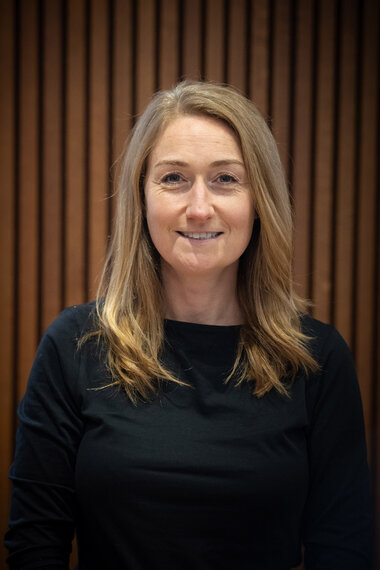17 January 2024
What is your role?
I am the Senior Research Manager for the newly formed virtual UK Motor Neuron Disease Research Institute (UK MND RI), hosted by King’s College London.
The Institute is a collaborative partnership of six MND research centre across the UK (University of Edinburgh, University of Sheffield, University of Liverpool, University of Oxford, and University College London) working together with patient-campaigners from United 2 End MND to accelerate the search for a cure for this this most devastating disease.
What do you enjoy most about your role?
What I most enjoy about my role is the people. This ranges from clinicians, academics, students, colleagues from across King’s College London and the partner universities, people with MND and their families and carers, charity organisations, industry, and biotech. In one way or another, everyone involved in the Institute is committed to delivering excellent research in the pursuit of more meaningful treatments for people with MND and their families.
Despite the numerous challenges involved in setting up a new virtual institute involving so many stakeholders, it is always the people who make the challenges surmountable.
What inspired you to get into this work?
I can’t quite recall the exact moment I realised a career in clinical research management and governance was the exciting work for me! I mean who would at age five, when asked by an adult “what do you want to be when you grow up”, think of such a job! But I seem to be good at it.
When I left college, I wanted to work more than study. I took on an administrative role at a local youth charity in south London, where I enjoyed working on the parental support help line - talking to parents and sometimes other young people. I then moved on to a role at the London School of Hygiene and Tropical Medicine where I first encountered clinical trials.
I provided administrative support to the well-known CRASH trial, entering a lot of incoming trial data! I loved everything about research projects and trials bar being a researcher… Academic writing wasn’t my forte, but organisation and operations were.
I took a role at the University of Nottingham because I wanted to relocate. Here I coordinated the post-graduate MSc degree in Neuroscience – I didn’t even really know what neuroscience was; but I loved the academics, the researchers, and most of all students. I loved working in a university and wondered why I never embarked on a degree myself, so I did. That’s another long story, but after graduating from a BA in Social Anthropology from Goldsmiths in London, I realised I wanted to continue a career in higher education which incorporated working for the good of society.
I naturally gravitated towards a role in research coordination and patient-participant recruitment. This is where I started my career in research management and governance in the School of Neuroscience at King’s College London. I’ve been here for over 10 years now, in the same department, managing the set-up and delivery of many research projects and trials seeking to improve outcomes for people living with neurological conditions.
The wonderful colleagues I have had the pleasure of working with together with the success I’ve had in research management has inspired me to further my career in senior management and leadership. I am now very honoured to be leading on the operational aspects of the UKs first MND Research Institute.
What are the benefits of working in partnership?
Working in partnership is essential to producing high quality research of social and scientific value. I do not believe it’s possible in this day and age to deliver excellent research in a vacuum. Through collaboration, the sharing of knowledge and expertise, almost anything is possible.
What would be your one career top tip?
Networking. If you are wanting to develop professionally, networking, and involvement in projects or work other than your current role is a great way to do this. For example, committee work. I have sat on a number of committees for the NHS National Research Ethics Service, for King’s Health Partners, and within the Research Management Directorate where I am based. I cannot express how beneficial this can be for both personal and professional development.
King’s Health Partners Neurosciences has an ambitious vision to use our collective clinical, research, and educational expertise to deliver world-class patient care and research.





